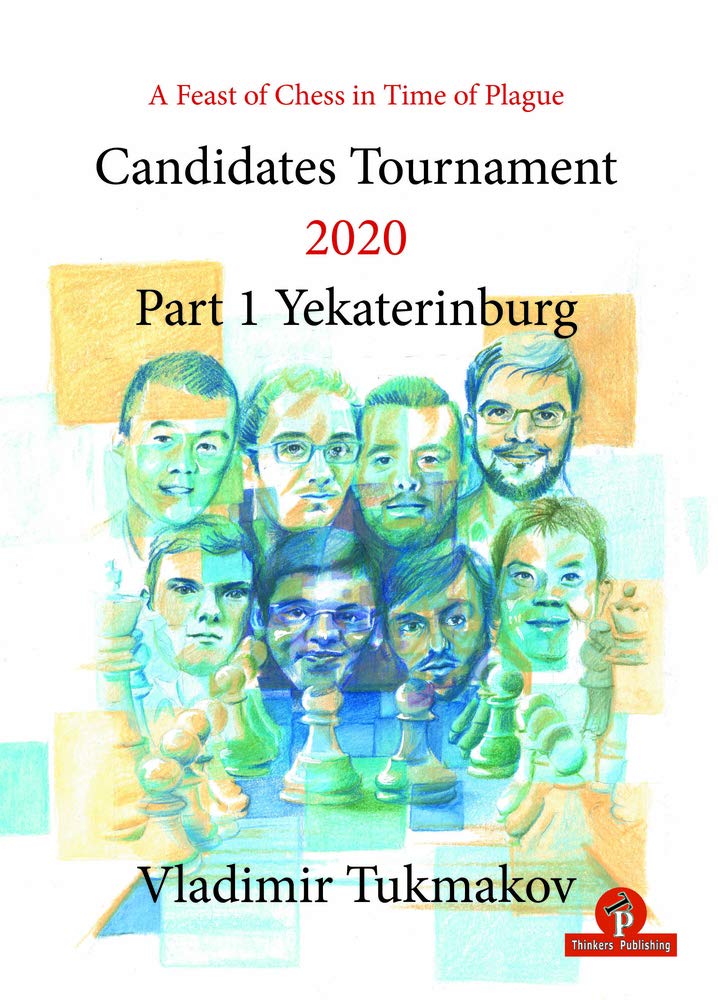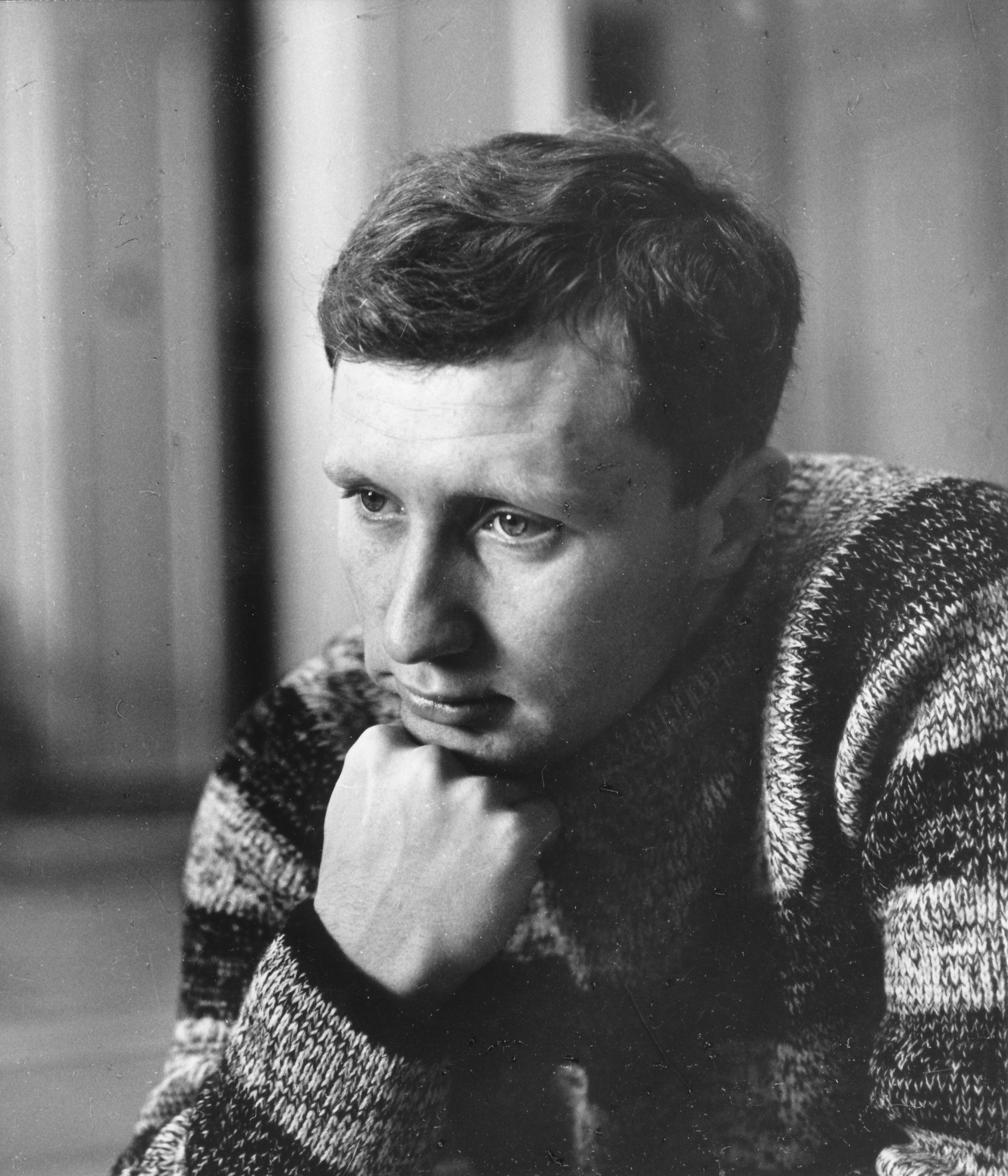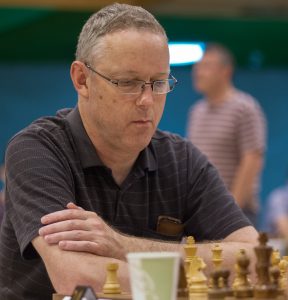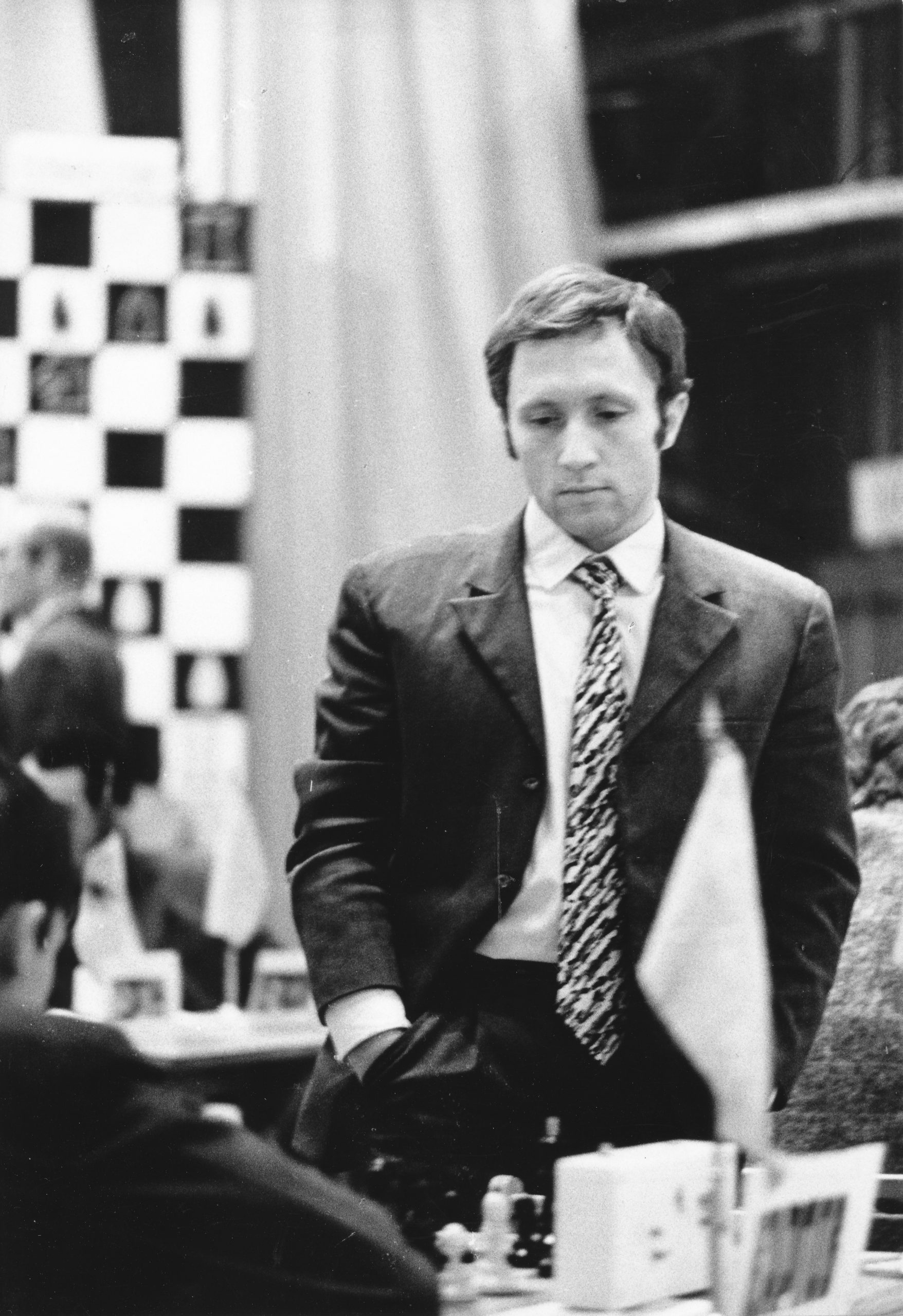
From the rear cover :
“Vladimir Tukmakov, born in Odessa 1946, was one of the strongest Ukrainian grandmasters. He was the winner of several strong tournaments, including the Ukrainian Championship in 1970, and he came second in three Soviet championships in 1970,72 and 83. After his successful period as active player, he became a coach, trainer and author. This is his second book for Thinkers Publishing, after his major success in 2019 with ‘Coaching the Chess Stars’.”

Also from the rear cover
“The official story of the 2020 Candidates Tournament began on November the 11th, 2019 with the signing of a contract between FIDE and the Russian Chess Federation detailing the hosting duties of said tournament in Ekaterinburg from the 15th of March to the 5th of April, 2020. At that point no one could have even imagined how difficult the road to that tournament would be nor how unexpected the outcome. Yet the significance of the actual numbers in this dramatic epic is hard to overestimate which is why the author will attempt to play the role of chronicler and try to describe as accurately as possible the key moments of this historic event. Vladimir Tukmakov was our close observer, author and wrote a historically important book on the first part of the Candidates 2020.”
Tournament books, once a staple of chess literature, have been rare in recent years and books about half a tournament have always, naturally, been rarer still. This book by GM Vladimir Tukmakov is just such a book – and in my opinion it is a very welcome one.
Of course, 2020 has been an exceptional year (in a bad sense of exceptional) and the Candidates Tournament stands out as the exceptional (in a good sense of exceptional) over-the-board elite event of the year. It is unfortunate that Covid-related reasons forced the tournament to be suspended before its conclusion. (Or was the suspension necessary? The author’s comments on the decision are interesting.)
Although the tournament started on schedule in March, it was already in somewhat controversial circumstances because Teimour Radjabov had withdrawn – citing the rapid spread of the pandemic – and had been replaced by Maxime Vachier-Lagrave. The tournament was suspended exactly half way through following an announcement by the Russian government that all international air travel had been suspended indefinitely. The eight Candidates had been due to play each other twice, and seven of the fourteen rounds had been completed.
The author of this book, now aged 74, has been pretty much inactive as a player in recent years but he was a top player for a number of years, coming second in the Soviet Championship on three occasions, and reaching number 12 in the world rankings. This quality is reflected in his game annotations even if they are – as he modestly admits – sometimes helped by his “Iron Friend” (as he refers to chess engines).
The book consists of the following sections:
Introduction: Three pages of he author’s reflections on why he chose to write this book.
Prelude: Nine pages which describe the tournament itself, its participants and its occurrence in the time when the pandemic was developing.
The Play: 121 pages of games, with each of the 28 games annotated by the author and with a summary of the situation after each round.
Unexpected Conclusion: A brief two page description of the suspension.
Interim Results: An eight page summary of the tournament (so far!) including general observations of the players and their prospects for the remainder of the tournament, whenever that will be.
The Prelude and Interim Results chapters are informative and are engagingly written. They include a number of personal reflections by the author. The annotations in The Play chapter are, I think, superb, with both textual comments and given variations always hitting the spot in their relevance. An example of this is taken from his notes to the Ding-Caruana game:
12 d5!?
Another complicated decision. The position demanded 12.e3 in the hope of completing development after 12… Bb3 which was like the game. Also, worth considering was 12… Bg6!? 13.Bc4 (Although 13.Nd3 led to an even more complicated struggle. For instance, 13…Na6 14.Nxb4 Nxb4 15.dxc5 Nc2 16.Rb1 Qa5) 13… Bxc4 14.Nxc4 cxd4 15.exd4 (15.Qxd4 Qe7) 15… Nc6 with enough compensation for the pawn.
It is very revealing, that having found himself in a difficult psychological situation, the Chinese grandmaster does not rush towards simplification instead choosing a more difficult and principled continuation each time.
(The book actually uses figurines for the pieces.)
Tukmakov is generally very respectful of the great players who are taking part in the tournament (indeed he writes that the book “bears witness to my solidarity with my younger colleagues” in view of their bravery in playing under the circumstances of the pandemic), but this doesn’t stop him from criticising them. For example, their clock handling occasionally comes in for comment. On one occasion he writes:
It is difficult to understand what Giri thought about for 25 minutes.
As may perhaps be expected, Grischuk receives sterner criticism in this area – but criticism that is well reasoned (and somewhat humorous).
In summary, I really like this book. I look forward to the second instalment which I hope arises as and when the second half of the tournament is complete. Who knows, perhaps tournament books are not a thing of the past after all?
Colin Purdon, Crowthorne, Berkshire, November 11th 2020

Book Details :
- Flexicover : 160 pages
- Publisher: Thinkers Publishing; 1 edition (8 Dec 2020)
- Language: English
- ISBN-10: 9492510928
- ISBN-13: 978-9492510921
Official web site of Thinkers Publishing


